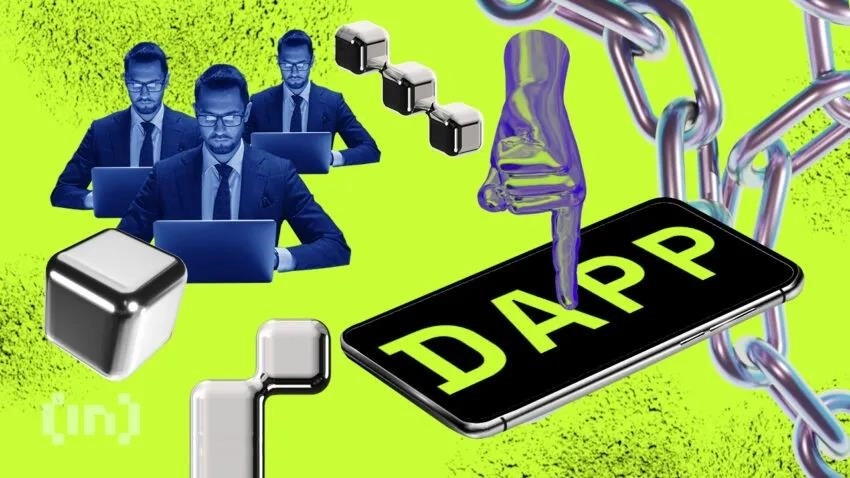Crypto
RPC Crypto: Understanding Blockchain RPC Nodes and Their Importance
This guide dives into the world of blockchain RPC nodes, explaining what they are, how they work, and why they are crucial for web3 development. We’ll also explore different types of RPC nodes, how to get started, and why they are a game-changer for decentralized applications (DApps).
What Are Blockchain RPC Nodes?

Think of blockchain RPC nodes as essential gateways that let developers access blockchains in a user-friendly and cost-effective way. They are the backbone of every permissionless and permissioned distributed ledger, powering a range of web3 applications like NFT marketplaces, crypto exchanges, trading bots, and decentralized storage systems.
Understanding RPC (Remote Procedure Call)
RPC, or remote procedure call, is a request-response protocol that allows programs on separate computers to interact seamlessly. Imagine Alice asking Bob to perform a task without knowing his location. That’s essentially what RPC does: it enables programs to communicate with each other across networks.
Each call (request) is met with an answer (response), streamlining development by eliminating the need to repeatedly write the same code. This makes RPC a cost-efficient solution for utilizing computational resources.
RPC Endpoints: Connecting DApps to Blockchains

RPC endpoints act as the bridge between DApps and blockchain nodes. These endpoints are like URLs that tell DApps where to send requests. They are crucial for DApps to access blockchain data, verify transactions, and interact with the blockchain.
Different Types of RPC Endpoints
There are two main types of RPC endpoints:
Public RPC Endpoints
Public RPC endpoints are free and open to everyone, allowing developers to begin building on blockchains without significant upfront costs. These endpoints are often provided by blockchain teams for easy access.
While convenient, public endpoints have limitations. They often have limited bandwidth, slow performance, and lack dedicated technical support. They are best suited for personal projects, research, or testing purposes.
Private RPC Endpoints

For commercial applications that require high performance and scalability, private RPC endpoints are the go-to solution. These endpoints are managed by private entities called blockchain RPC node providers. They offer customized solutions tailored to specific needs, including:
- Enhanced Speed: Faster processing times compared to public endpoints.
- Flexibility: Ability to customize API endpoints for various use cases.
- Scalability: Option to scale up the infrastructure to handle increasing traffic.
While private endpoints come with a cost, they are essential for building robust and reliable web3 applications.
Why Web3 Developers Need Private RPC Endpoints
The combination of speed, flexibility, and scalability makes private RPC endpoints a necessity for modern DApps:
- Speed: DApps rely on fast transaction processing to provide a seamless user experience. Public RPC endpoints often struggle to handle high demand.
- Flexibility: Customized private RPC endpoints allow developers to integrate specific features and optimize performance based on their application’s requirements.
- Scalability: As DApps grow, they need the capacity to handle more users and transactions. Private RPC providers can adjust resources to meet the growing demands.
RPC Endpoints and Blockchain Node Providers

Blockchain node providers offer a convenient alternative to running self-hosted nodes. They give developers access to a wide range of blockchains through private RPC endpoints.
GetBlock is one of the leading providers in the industry, offering access to over 50 blockchains with various pricing plans. Other popular providers include Chainstack, Alchemy, and Infura.
Getting Started with RPC Endpoints
Here’s a step-by-step guide on how to use private RPC endpoints for your DApp:
- Register an account: Create an account with your chosen RPC node provider.
- Select your blockchain: Choose the blockchain you want to connect to.
- Configure your API endpoint: Customize the settings based on your application’s needs.
- Select a plan: Choose a pricing plan that suits your budget and requirements.
- Activate your endpoint: Pay for the chosen plan, and your endpoint will be activated.
- Integrate the endpoint: Add your RPC endpoint to your DApp’s codebase.
- Start sending requests: Connect to the blockchain and begin interacting with it.
Blockchain RPC Nodes: Game-Changers for DApps
In conclusion, blockchain RPC nodes are fundamental to building and running successful web3 applications. While public RPC endpoints offer free access, private RPC nodes offer the speed, flexibility, and scalability needed for commercial-grade DApps.
By leveraging private RPC endpoints, developers can create more efficient, responsive, and user-friendly decentralized applications, propelling the growth of the web3 ecosystem.
Frequently Asked Questions
What is a blockchain RPC endpoint?
A blockchain RPC endpoint is a unique URL that acts as a gateway for DApps to connect to blockchain nodes. It enables DApps to send and receive data to and from the blockchain.
Does blockchain use RPC?
While blockchains don’t inherently need RPC nodes for their core functionality, RPC nodes are essential for running decentralized applications that interact with the blockchain.
What is the best RPC endpoint?
The best RPC endpoint depends on your needs. Public endpoints are ideal for small projects, while private endpoints are essential for large-scale, commercial DApps.
What is an RPC node in Solana?
An RPC node in Solana is a computer that connects to the Solana blockchain and processes requests, similar to how it works in other blockchains.
What is an RPC node in Ethereum?
In Ethereum, RPC nodes facilitate communication between DApps and the blockchain, enabling the execution of smart contracts, transaction validation, and other core operations.

Learn more about us at: javanet247
This guide is for informational purposes only and does not constitute financial advice. It is essential to conduct thorough research and consult with a qualified professional before making any investment decisions.
